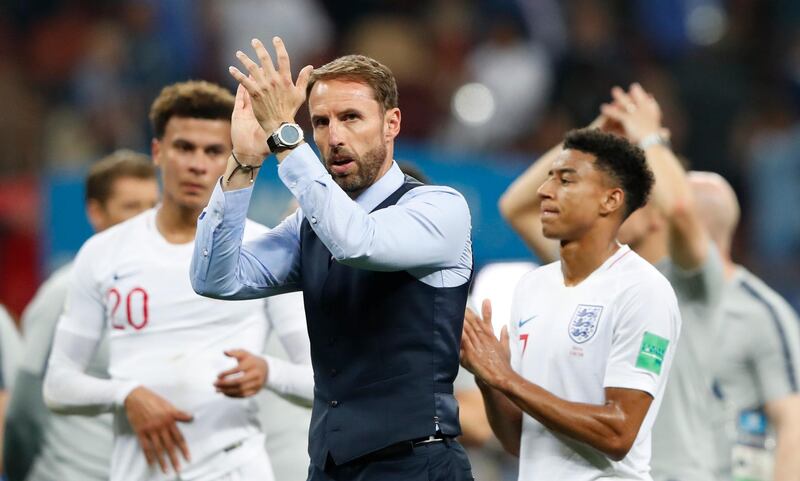Twenty eight years after Chris Waddle hit the inside of the post, 22 after a sliding Paul Gascoigne almost applied the faintest touch required to convert Alan Shearer’s cross came John Stones’ header that Sime Vrsaljko cleared off the line.
England’s experience of semi-finals in the last 50 years can be boiled down to two words: what if?
The greater significance may lie in two more: what next? Gareth Southgate found eloquence in disappointment, resisted the urge to jump to conclusions and replied that was is too early to say England will be better in two years’ time.
The age profile suggests so, and so does the success of their junior teams, but that does not equate to proof of future glory.
A reason why England’s past semi-finals inspire such nostalgia is because they were not the start of something. Their quarter-final win over Cameroon in the 1990 World Cup was their last victory in a major tournament for six years.
_______________
Read more
Gareth Southgate 'proud' of England progress despite World Cup semi-final defeat
England player ratings as Gareth Southgate's side beaten in semi-final by Croatia
Croatia reach World Cup final as Mandzukic goal sinks England in extra time
2018 World Cup semi-final as it happened: Mandzukic goal puts Croatia in World Cup final
_______________
After 1996, they did not reach the last eight for six years. Now they have a less gifted group, but a stronger system.
If the past is a problem, there is a new difficulty: expectation. For once, England did not really expect in Russia. It was instead pleasantly surprised.
It was arguably the first time since 1990 that they have gone further than most anticipated and while they had one of the least demanding routes to the last four, the fact is that they got there.
In the process, they restored an emotional connection with a fanbase and a nation that, at various points, had been apathetic and alienated.
It turned out that, more than anything else, England simply wanted a team to be proud of.
If it is essential they retain the same attitude, the blend of humility and likeability, unity and industry that has changed perceptions, the defeat to Croatia highlighted where the scope for improvement lies.
A new-look England still have some age-old issues: various sides over the years have taken 1-0 leads and either failed to capitalise with a second goal or stopped performing.
You’ve brought belief and the love of football back. Thank you boss from the whole nation ❤️⚽️ pic.twitter.com/2meUAFlIN5
— Marcus Rashford MBE (@MarcusRashford) July 12, 2018
The way the elusive Luka Modric ran the midfield highlighted a traditional problem against playmakers and that England lack one. Perhaps, in time, someone like Phil Foden will remedy that, but, realistically, not yet.
In the meantime, a flaw in Southgate’s 3-3-2-2 formation can be that it leaves Jordan Henderson isolated at the base of the midfield, prone to being outmanoeuvred by intelligent passers.
It has worked when England have the initiative, but rather less so when they have lost it. In time, too, opponents could become more familiar with England’s unconventional system and, like their set-pieces, it may stop being an innate advantage.
More original thought will be required. So, too, discovering an ability to create more chances in open play and reducing a reliance on Harry Kane to score.
It hurts a lot. It will hurt for a while. We can be proud and we'll be back. Thanks for all your support. #ThreeLions #ENG #WorldCup pic.twitter.com/mJKOWtAOlK
— Harry Kane (@HKane) July 11, 2018
Perhaps Southgate’s lack of game-changing substitutions simply reflected the absence of match-winners in reserve in a squad that lacked Adam Lallana and Alex Oxlade-Chamberlain and in a time before prodigies like Jadon Sancho and Ryan Sessegnon are ready.
Maybe, though, a transformative manager can improve his own in-game management. He seemed too slow to react when both Colombia and Croatia were in the ascendancy.
England displayed meticulous planning, but not the speed of thought needed to adjust to changing circumstances.
They never pretended they were the finished article. England’s aim, as Southgate voiced, is to be regular participants in the latter stages.
That they reached territory the golden generation never charted with Harry Maguire and Kieran Trippier, Ashley Young and Eric Dier, has fostered renewed optimism.
To secure silverware, however, they need to get better again.






